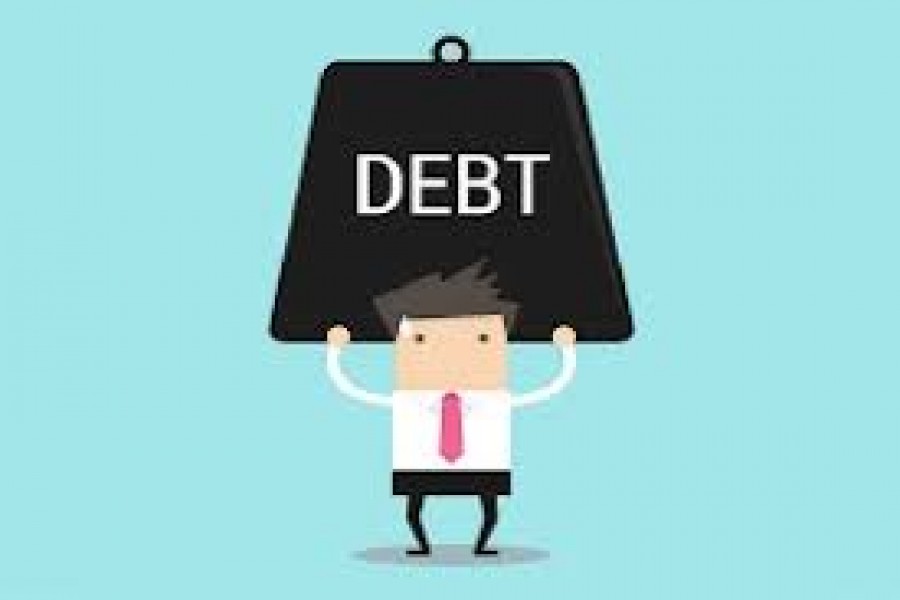Bangladesh's external-debt stock ratcheted up by over $10.0 billion in a year to US$67.75 billion in 2020, and as much might have been added up in 2021.
The nearly 19-per cent debt buildup for Bangladesh in 2020--the year entirely overshadowed by the disruptive coronavirus pandemic-is evident from "International Debt Statistics of 2022", a flagship publication of the World Bank, released recently.
External-debt stock on a nation comprises public-and publicly-guaranteed long-term external debts, private non-guaranteed long-term external debts, use of IMF credits, and short-term external debts, including interest arrears on long-term ones.
The report also shows that the repayment of the principal by private sector remained much lower in the year under review over a year earlier. The private sector non-guaranteed debt repayment was $1.5 billion, down by more than 54 per cent year on year.
Economists view that the rising trend in the external-debt buildup is a matter of concern, especially because of the lingering coronavirus pandemic as the country's private sector has been in troubles amid resurgence in infection with the highly contagious new covid-19 variant ---Omicron.

They hint that in 2021 more $10 billion external debt might have been added up to the stocks as there were more multilateral and bilateral debts. Bangladesh received both budgetary and covid-related supports from overseas lenders in 2021.
They say that the onus of debt servicing, in the final analysis, lies on the shoulders of government in case of repayment failure on part of the private sector.
Dr Zahid Hussain, former lead economist at the WB, says: "Apparently, we are safe. But if the corporate fails to repay, who will take the responsibility?"
Citing the case of Padma Bank, formerly Farmers Bank, he says it was rescued by the state-owned banks following directives of the government although the government banks are not in good position in terms of their financial health.
"Although the private corporate loans are not guaranteed by the government, but the government cannot avoid such a liability at the final stage when those become overdue," the economist told the FE.
Dr Hussain, turning to valuation side of the debt burden, says the currency weakening has an adverse impact on the debt stocks. When the foreign currency becomes stronger against the local currency, BDT, the debt stock goes up ballooning.
Dr Ahsan H. Mansur, executive director at the Policy Research Institute of Bangladesh (PRI), told the FE: "The rise in the debt stock has mixed impact on the economy."
He notes that the debt stock-to-export ratio has increased to 174 per cent. "This is not a good sign…". It was 124 per cent in 2019.
He says this has led to rise in the external debt stock- to -gross national income or GNI to 20 per cent. It was 18 per cent in 2019.
Dr Mansur feels the reserve-to-debt stock equation that surged to 62 per cent is a good one as it means that reserves are still better than the external-debt stock.
The verified WB report, released two weeks back, said that Bangladesh's total long-term debt stock was $54.65 billion in the year under review while the short- term over $10.99 billion. Use of IMF credits, also part of the total debt, was just $2.11 billion.
However, a government publication styled debt bulletin shows that the country's external debt stock in fiscal year 2021 was Tk 4203580 million or around $49 billion.


